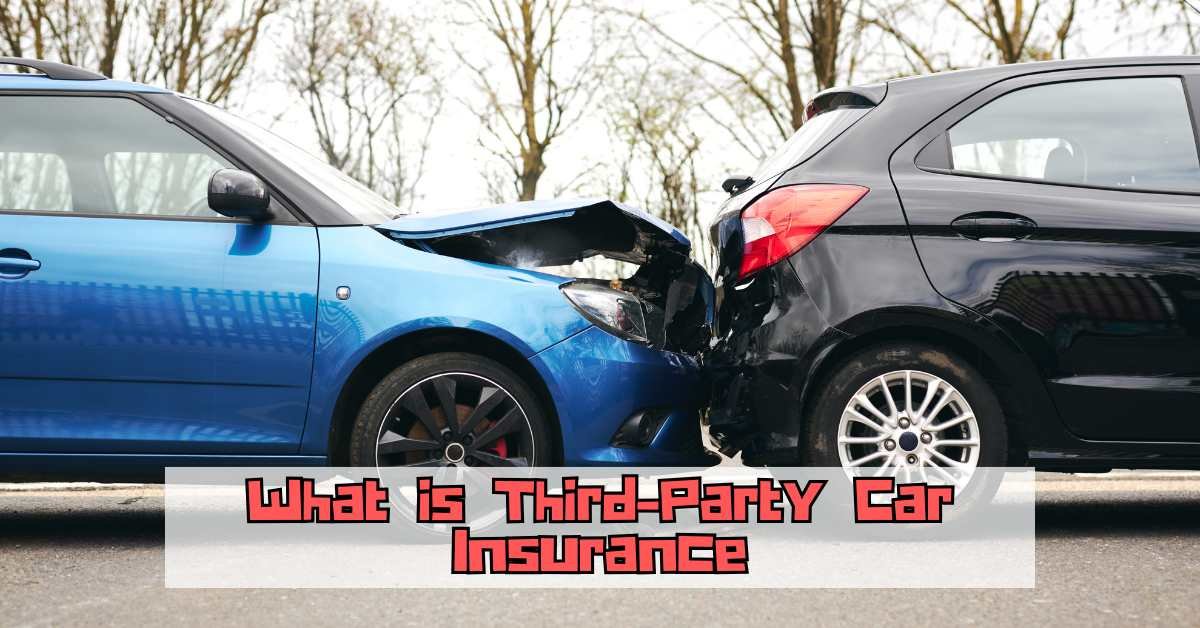Introduction
Car insurance is an essential financial tool for anyone who owns or drives a vehicle. It provides protection against unexpected incidents, accidents, and liabilities. Among the various types of car insurance available, third-party car insurance is one of the most common and legally required forms of coverage.
In this guide, we’ll break down everything you need to know about third-party car insurance, including what it is, why it’s important, and how it works.
What is Third-Party Car Insurance?
Third-party car insurance is a type of insurance policy that provides coverage for damage or injury caused to third parties (people or property) as a result of your driving. The policy primarily covers the legal liabilities that arise from an accident where the other party’s vehicle or property is damaged, or when someone is injured or killed due to your actions on the road.
In simpler terms, it protects you against financial obligations if you cause harm to someone else or their property while driving your car.
Why is Third-Party Car Insurance Mandatory in India?
In India, third-party car insurance is mandatory by law under the Motor Vehicles Act, 1988. The law requires every vehicle owner to have at least third-party insurance before they can drive legally on the road. This mandate aims to protect road users from the financial consequences of accidents that may cause damage to others.
Legal Requirements:
- If you are caught driving without third-party insurance, you could face hefty fines, penalties, and even the suspension of your driving license.
- The coverage is essential to ensure that innocent parties involved in accidents can be compensated for their losses without burdening the at-fault driver with substantial costs.
Top 10 Housing Finance Companies In India 2025
Key Features of Third-Party Car Insurance
- Coverage for Third-Party Injuries or Damage
- Third-party insurance covers the injuries or death of a third-party individual involved in an accident. It also covers any damage to their property.
- Legal Liabilities Covered
- If you are found at fault in an accident, third-party insurance ensures you are protected from the financial impact of lawsuits or claims filed by the affected third party.
- Duration and Renewal
- Third-party insurance policies are usually valid for a year and need to be renewed annually. It’s crucial to ensure timely renewal to avoid legal trouble.
Benefits of Third-Party Car Insurance
- Financial Protection for Third-Party Claims
- If you are responsible for an accident that damages another person’s vehicle or causes injury, third-party car insurance will cover the financial compensation, protecting you from huge out-of-pocket expenses.
- Cost-Effectiveness
- Compared to comprehensive insurance, third-party car insurance is generally more affordable since it provides limited coverage.
- Peace of Mind While Driving
- Knowing that you are covered for any liabilities arising from an accident involving a third party can offer significant peace of mind, especially when driving in busy areas.
Limitations of Third-Party Car Insurance
While third-party insurance is beneficial, it’s essential to understand that it has certain limitations:
- No Coverage for Own Car Damages
- Third-party insurance doesn’t cover damages to your own vehicle in case of an accident. If your car is damaged or stolen, you would not receive compensation under this policy.
- Lack of Personal Injury Coverage
- If you are injured in an accident, third-party insurance does not provide any coverage for medical treatment or personal injury claims.
- Limited Protection
- Third-party insurance only covers accidents involving third-party individuals or property, leaving you vulnerable to other situations not covered under this policy.
How Does Third-Party Car Insurance Work?
When you purchase third-party car insurance, you are essentially paying for protection against accidents that cause harm to other people or property. If an accident occurs and the third party files a claim, the insurance company will cover the financial costs associated with the damages, subject to the terms and conditions of the policy.
Here’s how the claims process typically works:
- Report the Incident: After an accident, you must inform your insurer about the incident, providing necessary documentation and details.
- Assessment and Investigation: The insurer will assess the situation and investigate the circumstances surrounding the accident.
- Claim Settlement: If the third party is found to be at fault, the insurer will pay for their damages, medical bills, and other related expenses.
What is Not Covered Under Third-Party Car Insurance?
Third-party car insurance has several exclusions, including:
- Damage to your own vehicle or injuries to the driver
- Losses arising from natural calamities, theft, or vandalism
- Accidents caused while driving under the influence of alcohol or drugs
- Intentional damage to property or people
Third-Party Car Insurance vs Comprehensive Car Insurance
While third-party insurance provides limited coverage, comprehensive car insurance is a more extensive policy that covers damage to your vehicle, theft, third-party liabilities, and personal injuries.
When to Choose Third-Party Insurance:
- When you are looking for a budget-friendly option that fulfills legal requirements.
When to Choose Comprehensive Insurance:
- If you want extensive coverage for your vehicle, including protection against natural disasters, theft, and damage to your car.
How to Buy Third-Party Car Insurance
You can easily purchase third-party car insurance either online or offline:
- Online: Many insurance companies allow you to buy third-party car insurance through their websites or through third-party aggregator websites. You can compare policies, prices, and buy the best plan according to your needs.
- Offline: You can also visit the insurance company’s office or an authorized agent to purchase the policy.
Documents required for buying third-party insurance may include your vehicle registration document, proof of identity, and a valid driving license.
Conclusion
Third-party car insurance is an essential and legally required form of coverage that helps protect you against liabilities arising from accidents involving third parties. While it is cost-effective, it’s important to be aware of its limitations and consider whether a more comprehensive policy is necessary for your needs.

